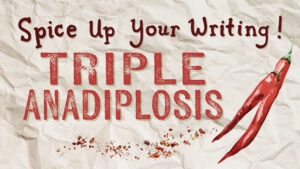Grade 3
-
Language
-
Reading: Fluency
-
Reading: Informational
-
Reading: Literature
-
Speaking & Listening
-
Writing
CCSS ELA Standard: 3.W.4
With guidance and support from adults, produce writing in which the development and organization are appropriate to task and purpose. (Grade-specific expectations for writing types are defined in standards 1–3 above.)

When I see a quote, I often think, "That's not quite right!"

What if we rewrote a story's climax into a totally different genre?

Let's write a holiday song about order and chaos!

What if your students rewrote Dickens in the style of Hemingway and vice versa?

What if we rewrote a piece of writing without using certain letters?

What if we rewrote a piece of writing without using certain letters?

Students will look closely at this old image and write a short, structured poem.

Can your students come up with a one-syllable word to sum up their time away from school? And then rewrite The Beatles' song Help!?

Your students will turn the iconic painting The Scream into a vivid, sensory poem.

Have students mastered the art of anadiplosis: ending one sentence with the beginning of the next? Now it's time to take it to the next level!

Repeating words can be what you want, if what you want is an interesting effect. (Psst, that's an example of anadiplosis!)

Let's take a classic Christmas poem and remix it to work with another holiday!

What happens when a pronoun could refer to more than one noun? Big problems!

Let's write a summary. A very short summary. With VERY strict rules.

Did you ever notice that the structure of an essay is very similar to the structure of a paragraph? Hmm…

Can you write directions so clear that a group of kids can put a toy together with no illustrations?

Ever read a student's story that was just event after event after event and then a very sudden ending? They lack an understanding of a plot's structure. With the help of Finding Nemo, I break down how to set up a well-structured plot.
